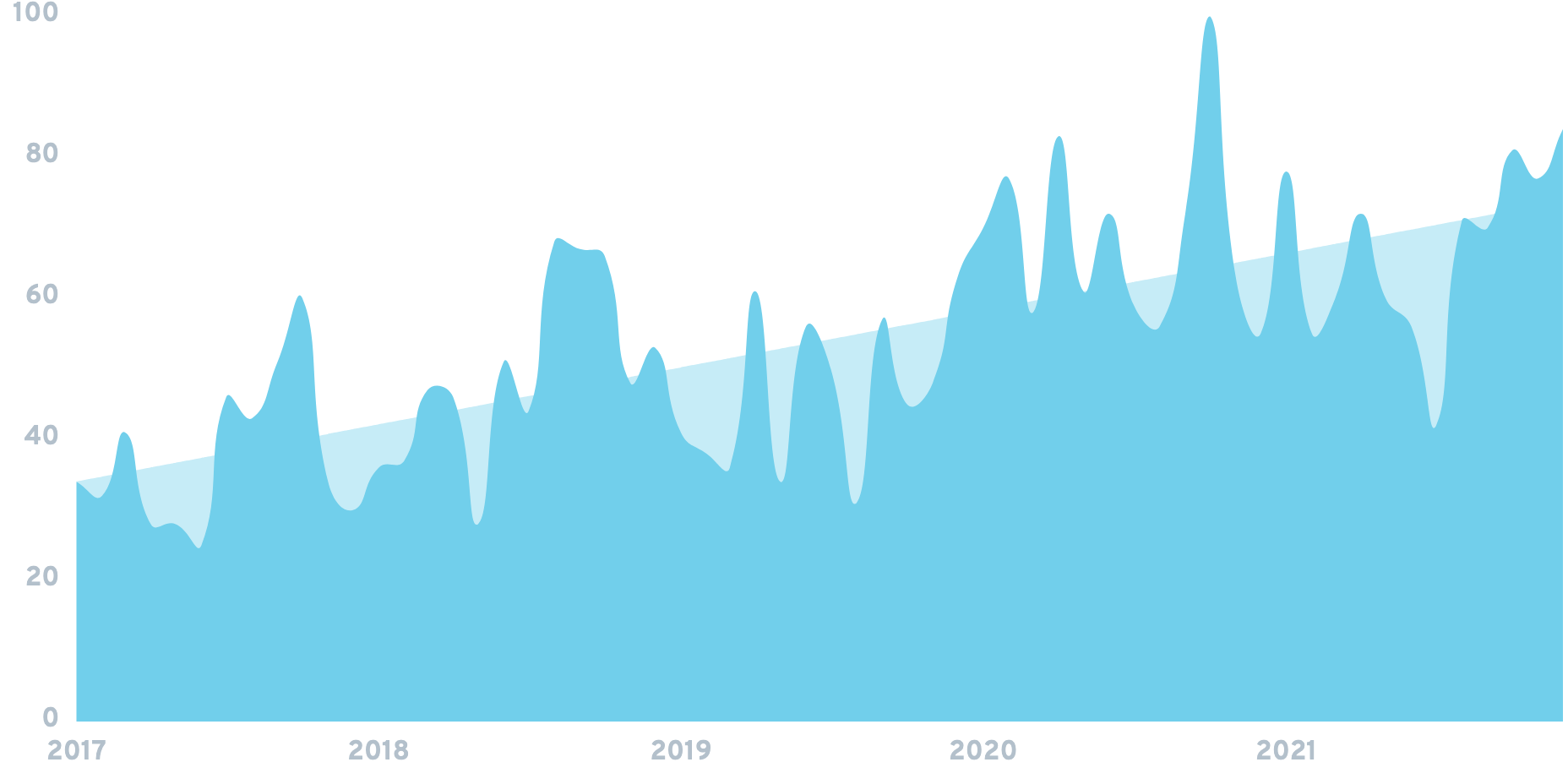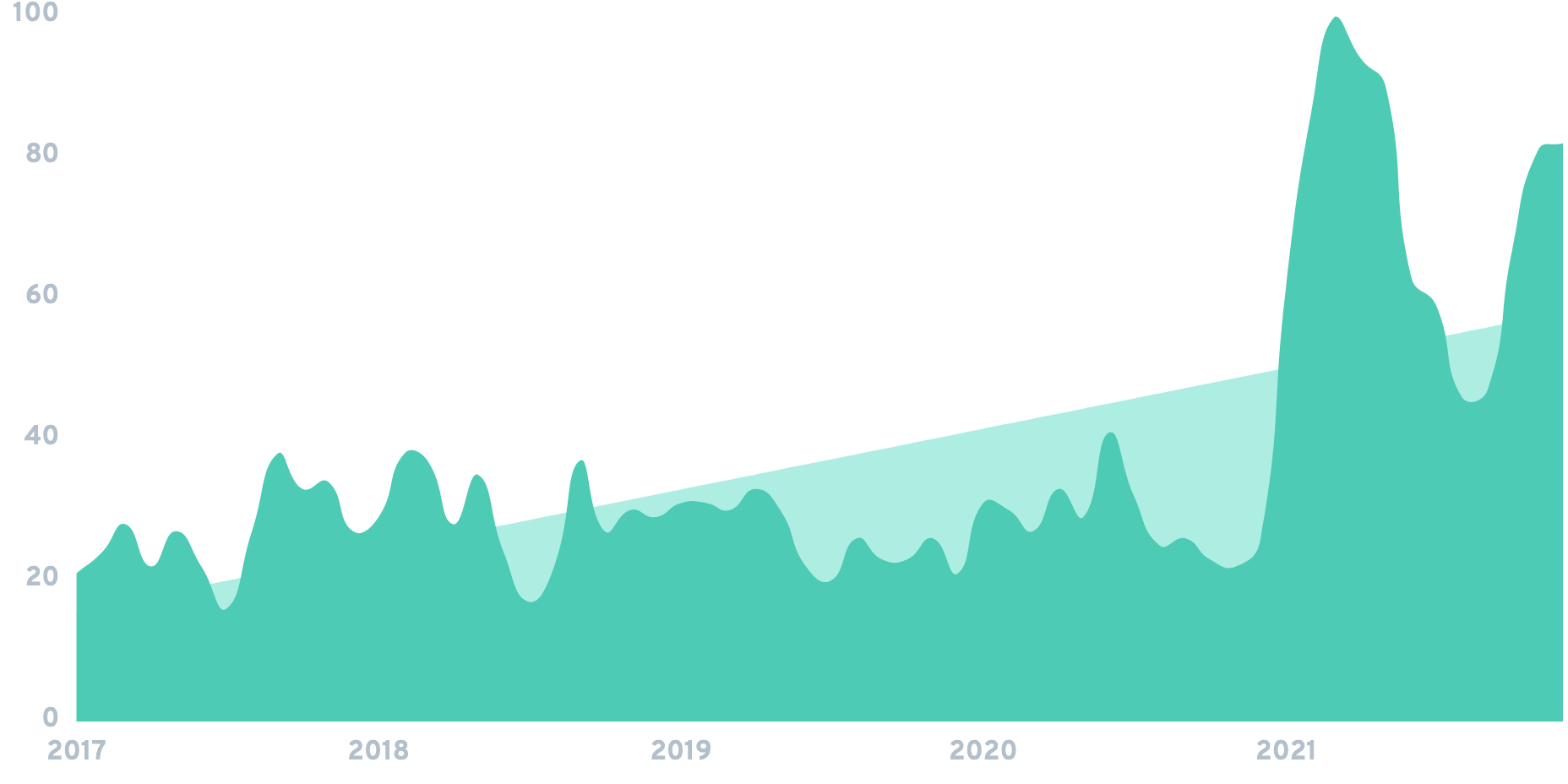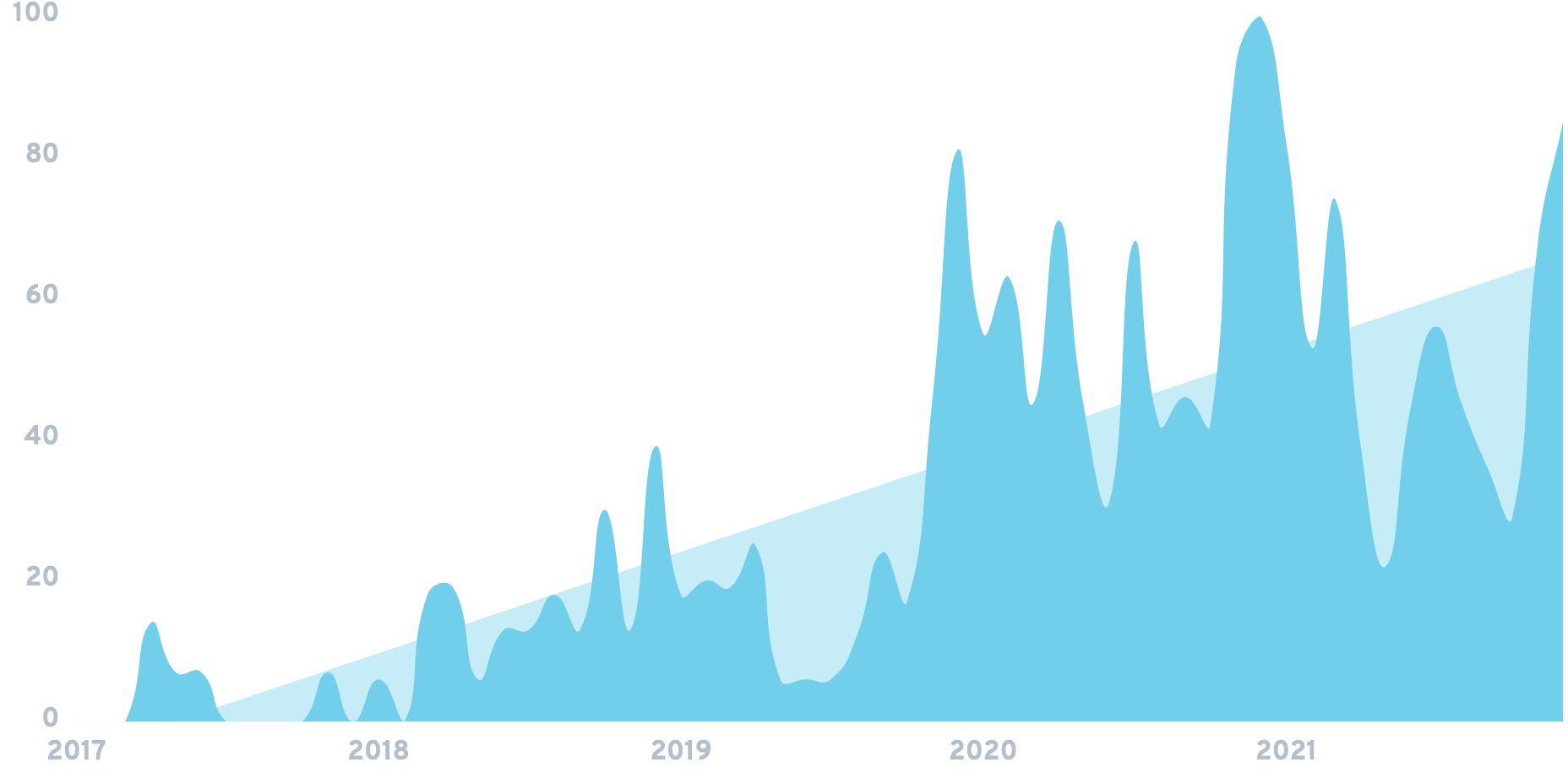Nearshoring, Covid wanderlust and sleep optimization
Exploding Topics scours the internet to find emerging trends before they take off.
Here are four of the latest developments, along with some insights and analysis to help you take advantage.
1. Nearshoring

Nearshoring is the process of outsourcing business operations to a geographically proximate country.
While there is no formalized description of what counts as nearshoring, it is generally expected to involve a time difference of no more than 2-3 hours.
Nearshoring is growing especially quickly in the EU. Among the D-A-CH countries (Germany, Austria and Switzerland), 75.58% of software development outsourcing is already “nearshored”.
59% of companies who outsource cite cost savings as a main reason for doing so. Offshoring maximizes savings, but nearshoring can cut costs a lot too (while minimizing cultural and time zone differences.) An IT business analyst in the US earns anywhere from $110 to $210 per hour. The same role in Latin America attracts a rate of $45-55 per hour.
What’s next:
Nearshoring is part of the business location optimization meta trend.
We’re seeing renewed emphasis on location optimization for both businesses and consumers. In fact, a Nielsen survey found that 46% of Americans are aware of “buying local” when grocery shopping.
As well as environmental factors, geographic positioning can improve things like delivery times. For instance, urban fulfilment centers are able to better serve the 65% of Americans who live in cities.
Trending startups leveraging location efficiency approaches include N-iX, Eleks and Fabric Fulfillment.
2. Kuda Bank

Kuda is a fintech startup based in Nigeria.
The company is aiming to build “a pan-African bank, not just a Nigerian leader”.
Kuda raised a $55M Series B last August and has 1.4M registered customers (a 2x increase from early 2021).
Their app hit a milestone of 1M Android app downloads in February 2021. And added an estimated 90K downloads on Google Play in November 2021 alone.
What’s next:
Kuda is a part of the “mobile-first fintech” meta trend.
Funding in banking startups reached $10.1B (across 297 deals) last year. increase of 18.42% over the previous year.
And US neobank market share as a whole grew 11% last year.
And many top challenger banks (like Chime, Current, Varo Money) have grown their user base by at least 50% over the last 24 months.
3. GeoGuessr

GeoGuessr is an online game in which users have to guess locations based on decontextualized street views.
Players mark their guesses on a map. And receive points based on how close they are. There are 13M possible locations that may be displayed.
The most popular map encompasses the whole world. It has already been played 73.7M times.
GeoGuessr employs a “freemium” model. Pro users can make their own maps, which may feature specific countries or regions. They also get an ad-free experience and unlimited plays.
The introduction of Battle Royale, a competitive mode available to Pro players, has seen popularity soar among streamers. The game now has 247K Twitch followers, and the hashtag has 431.7M views on TikTok.
As well as the browser experience, GeoGuessr can be played through an app. It has been downloaded 500K+ times on the Play Store.
What’s next:
GeoGuessr is part of the Covid wanderlust meta trend.
According to an AmEx report, 78% of Americans cite travel as one of the most missed activities during the pandemic.
As a result, stripped-back vacation ideas like “vanlife” and “staycations” have seen a search boost.
As well as actual alternative travel options, products that can partially replicate the feel of foreign exploration have proved popular.
SnackSurprise is a monthly subscription box of snacks from around the world. A separate country is represented each month.
SnackCrate, which follows the same concept, is estimated to generate $15M per year.
Other fast-growing topics in the meta trend include Sol de Janeiro (Brazil-inspired hair and body care), TasteAtlas (world food mapping service) and Bokksu (Japanese snack subscription box).
4. Weighted Eye Mask

Weighted eye masks are a cross between sleep masks and weighted blankets.
Like all eye masks, a primary function is to block out light.
But weighted masks also offer the potential to help with stress relief.
(Like weighted blankets, this relies on the idea of deep pressure stimulation.)
Anecdotally, users report that weighted masks can also help with headaches and migraines.
Texas startup Talking out of Turn sells a selection of weighted eye masks. Designed to be heated up or frozen, the masks claim to offer “muscle-melting tension relief”.
And Gravity sells a weighted headband meant for use as a sleep aid. The brand raised $4.73M on Kickstarter for its initial weighted blanket product.
What’s next:
Weighted eye masks are part of the sleep optimization products meta trend.
28% of people worldwide suffer from insomnia.
And the “sleep economy” is worth an estimated $488B. That space is forecast to rise to $585B by 2024.
Sleep gummies are an extremely fast-growing product category (searches are up 928% over the last 5 years).
Klova is a specialist sleep brand. It sells gummies, as well as sleep patches and weighted blankets.
In a sleep study, 92% of participants reported falling asleep faster with the Klova patch. And every participant recommended the product.
The patches generate an estimated $48.15K per month through Amazon.
Other topics in the meta trend showing strong growth include sleep coaches, valerian root and Neorhythm (a headband that emits electro-magnetic pulses).



